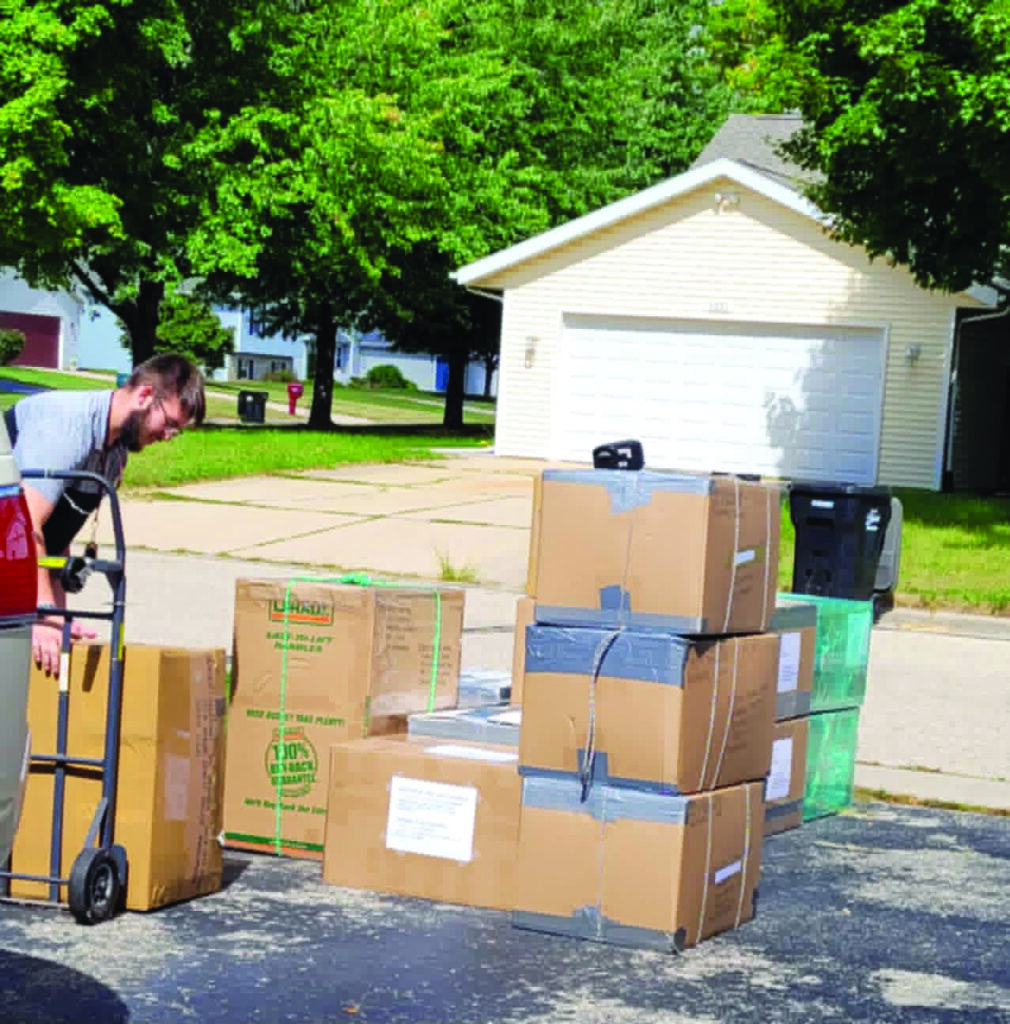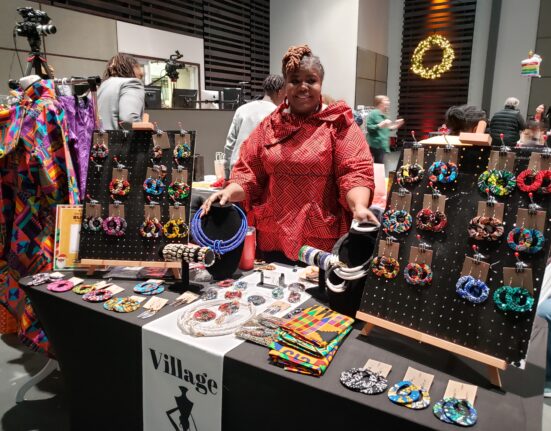
It starts with an empty box. The box is then filled with anything you can think of—clothes, toys, instant coffee, non perishable meats, snacks, knick knacks, medical and school supplies, and more—before it is sealed and shipped to the Philippines, traveling over land and sea to get to its destination, and sometimes, even more unconventional modes of transportation.
“It’s not very uncommon to see a scooter with a 110-pound box on the back because that’s the only mode of transportation that can get to residents [in faraway regions],” says Steve Kranig, owner of FNK Transport.
Beloit-based FNK Transport provides end-to-end transportation services ranging from shipping a single box to entire charter planes. In business since 2009, FNK Transport added Balikbayan Box shipping to its offerings earlier this year.
Balikbayan boxes are a typical mode for Filipinos living outside of the Philippines to send goods back home to their loved ones.
“Balikbayan,” which translates to “someone who returns to their country,” is a Tagalog term coined in the 1970s by the late dictator Ferdinand Marcos Sr. to refer to Filipinos coming back to the Philippines. But, because of the cost of airfare and other restrictions, these balikbayan boxes often serve as a stand-in for family members’ return.
“We love our families so much that even if we’re far from [them], we always think of them, and we always think [about] what to give them,” Joechel Kranig, Steve’s wife and business partner, explains. J Kranig moved to Wisconsin in 2010 from Davao City in the southern Philippines.
“[It serves] as a compromise since we can’t be there for them in person, so we may as well give them presents so they can feel our love,” she continues.
Globally, 400,000 to 500,000 balikbayan boxes are shipped to the Philippines every month. In the United States, which is home to the largest Filipino diaspora, fewer than 30 companies manage these shipments, and typically charge $95-$150 per box. The Kranigs wanted to find a way to make the process cheaper and more accessible. J Kranig began talking to her friends in Beloit to see how common it is for Midwestern Filipinos to participate in this practice.
“As her friend base grew, we heard more and more stories about this, and we started [researching] how many companies actually do this,” S Kranig said.
During a vacation to the Philippines last year, the duo met with partners in the Philippines to figure out if these shipments could be a feasible add-on to FNK Transport’s services.
“After we came back, we had a partnership that we felt good about,” S Kranig recalls.

FNK Transport charges a base of $85 per cargo box, with additional charges for remote destinations outside of the Manila metropolitan area, Cebu, and Davao, where a majority of boxes end up. Their competitors’ already-higher prices exclude the gas and toll prices and time it takes to drop boxes off to a supermarket in a major city like Chicago.
“We just want to help other Filipinos and provide a better option and cheaper prices for them so they can send their families gifts, especially for [major holidays like] Christmas,” J Kranig emphasized. “It’s a big thing.”
As the service’s social media manager, J Kranig frequently provides updates with photographs about where boxes are in their journey. These small, personal touches are key to building their client base, which has grown through online promotion and word of mouth amongst J Kranig’s friends.
“I’m so glad that I have a group of friends that always share my posts and support me,” she said. “I’m very thankful for them.”
Instead of having to travel all the way to Chicago to drop off their boxes, Wisconsin customers can deliver their parcels to drop-off points in Wisconsin. Sometimes, the Kranigs even receive boxes to their home in Beloit.
“We try to do anything we can to offer a better service than what other competitors are doing,” S Kranig says. “People have spent money on the items that are in the box and they just want their family members to get it in one piece. It is a rough journey […] so we really try to make sure everything is comforting to the customer.”
The average time for door to door delivery from FNK Transport’s receipt to delivery to a family in the Philippines is about 60 to 90 days, with some taking a maximum of 120 days to get to their destination.
“Logistics is a constant battle,” S Kranig said, noting that every time there is a vessel change, paperwork has to be redone. “But it’s fun to problem solve.”
In September, FNK Transport almost filled up an entire 20-foot truck, which carries around 200 balikbayan boxes—all of which will make it to the Philippines in time for Christmas.
“It’s such a great joy to see the priceless smiles [on loved ones’] faces every time they open that box,” J Kranig said. “It’s just pure joy.”






